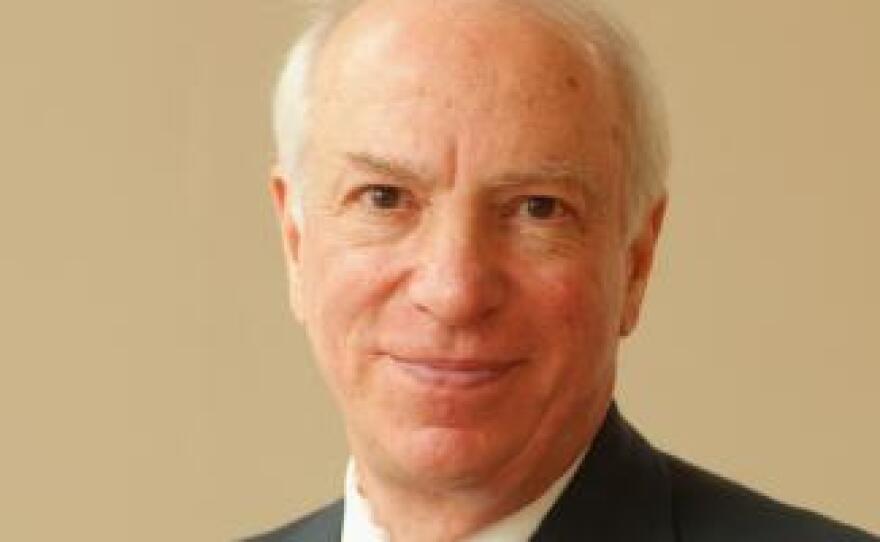In July, a committee of scientists and legal experts chaired by UVa law professor Richard Bonnie, made several recommendations to address the opioid problem. WMRA’s Marguerite Gallorini talked to him and some Charlottesville-area health care professionals about the report, and about possible solutions.
Last November, Virginia State Health Commissioner Marissa Levine declared the state’s opioid addiction crisis to be a Public Health Emergency. And it’s getting worse fast. The Virginia Department of Health says the number of overdoses due to opioids in Virginia has skyrocketed to more than 1400 in 2016 – that’s a 38-percent increase over one year. This includes prescription drugs such as Oxycodone and Vicodin, as well as heroin which is illegal. And they are now the number one cause of unnatural death, ahead of deaths from guns and road accidents. That’s a grave concern for the Food and Drug Administration.
RICHARD BONNIE: The FDA asked the National Academies of Sciences, Engineering and Medicine to do a study on pain management and the opioid problem. The main focus for the FDA was to advise them how they could better regulate opioid drugs, and make decisions about approval of drugs and monitoring of the use of them, that takes public health considerations into account.
That’s Richard Bonnie, Professor of Medicine and Law, and of Public Policy at UVa. He chaired the committee in charge of the report, which took about a year to complete.
One proposal: a change in mentalities.
BONNIE: We think there needs to be a culture change in the education of physicians and other prescribers, and also in public understanding of the role of opioids.
Patients don’t always realize what their pain medication really is, says John Halpin. He is a counselor and co-founder of a new small intensive out-patient program for substance use disorder in Charlottesville called Orchard Mountain Recovery.
JOHN HALPIN: A lot of people who would be listening to this, I'm sure, have some opiates that are left over in their medicine cabinet right now. But under no circumstances is that person thinking ‘wow, I have something that's equal to heroin in my medicine cabinet.’ Because we don't think that way but your body doesn't know the difference, between heroin or Vicodin or Oxycodone: it processes it the same way.
Oxycodone is the most common drug related to overdoses from prescription opioids, according to the Virginia Department of Health.
RASHEED SIDDIQUI: One of the biggest problems has been that physicians not only wrote for opiates but wrote for large quantities.
Doctor Rasheed Siddiqui is a pain management physician in Charlottesville.
SIDDIQUI: I tell my patients now: the amount you're taking, chances are you'll end up in an emergency room between 1 and 4 a.m., chances are this opiate will kill you. When you're very clear about that with patients, it's not surprising how much of them are saying ‘well how do we decrease our pain medicines?’ Since these guidelines have come out, I've done that across the board.
The guidelines he is referring to are the REMS guidelines – that stands for Risk Evaluation and Mitigation Strategy. In 2007, the FDA gained the authority to require a REMS from manufacturers to ensure that the benefits of a drug outweigh its risks. In spite of this, the situation got worse. So in March of this year, the Virginia Board of Medicine came up with strict regulations on prescription habits.
SIDDIQUI: A lot of physicians out there, who were writing patients for chronic opiates, have cut back, have literally stopped. The Board of Medicine was trying to say ‘you need to wean these people off of them.’ Not just stop it. It was one of those plans that was put into play, and they just said it was in effect – instead of giving a 6-month period and assisting physicians in this. My biggest fear is these patients now are going to the streets.
That lure of illegal opioids was a big concern in the committee’s report to the FDA.
BONNIE: Part of the challenge that we had, is that if you tighten up too much on the availability of opioids, then people who need them to control their pain will suffer and are very concerned about over-regulation.
Practitioners need to talk to one another to help with this transition, says Kasey Landrum. She is an HIV and hepatitis C testing program coordinator at Charlottesville’s Thomas Jefferson Health District.
KASEY LANDRUM: We need to have our practitioners talking to each other about combinations of things that can happen: ‘I have a patient, this is their issue, what would you suggest or even make that referral to somebody who's specialty is whatever that person's issue is.
The committee’s report recommends a combination of drug therapy with alternatives to move away from opioid treatments: Bonnie gives an overview of what works.
BONNIE: There's manual therapies, physical therapy, cognitive behavioral therapy, mindfulness meditation, and acupuncture too. One of the issues here is making sure that interventions of this kind, that are known to be successful, are covered by insurance.
SIDDIQUI: Alternatives are getting tougher and tougher to get covered. Patients are finding their co-pays a lot higher for things such as physical therapy and even what I do: injection-type therapy.
[X-Ray machine humming]
It is also a problem for classic treatment centers.
BONNIE: One of the issues there, of course, is tied back to the health care debate, because one of the things that has been most helpful for providing opioid treatment has been Medicaid, and the expansion of Medicaid.
In Virginia, the Republican legislature has so far refused to accept Medicaid expansion under the Affordable Care Act. But counselor John Halpin is optimistic.
HALPIN: I think the combination of education and having the right kinds of treatment available, that that's what it's going to take. Recovery is possible, and it happens more often than people realize.





